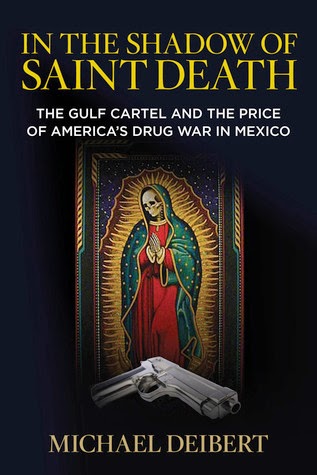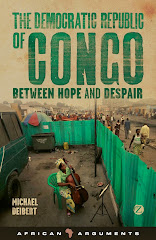Recently, I was forwarded an article written about me by Tom Luce, a man who runs something called Human Rights Accompaniment In Haiti, Inc. (Hurah). Generally, I don't respond to these sorts of things. While fringe dwellers and organizations can be an interesting subject in and of themselves, indicative as they are of the often smug condescension and paternalism that wealthy foreigners feel about poor people the world over, an entire article examining them, and their habit of haunting the internet day and night, spoiling for a fight and libeling people, would be an esoteric and tedious undertaking indeed. However, I felt that it might be worthwhile for readers if I took some time to respond to some of Mr. Luce's egregious misstatements and outright fabrications.
Accusing someone of "contributing to a proxy war" is a serious charge, Fortunately, judging by Mr. Luce's ponderous and slanderous diatribe against this member of the press, it evidently does not come from a very serious individual. When Mr Luce writes that my article is supporting "the prolongation of this proxy war, poor people killing poor people, as a way for the more affluent and powerful to keep their hands clean and keep hold of their power," he exposes both an appalling ignorance of the situation on the ground of Martissant and of the article he sets out to critique.
Apparently the statement in my article that "all armed groups in the neighborhood have been implicated in the grossest human rights violations by residents," followed by "the international community must demand human rights for all in Haiti, without distinction for political affiliation, as it is truly the only way forward," suggesting as it does one standard of human rights for all groups to adhere to (echoing my November 2005 Newsday editorial, "Ballots instead of bullets"), isn't explicit enough for Mr. Luce, so I will try and hold his hand a little further.
Visiting Grand Ravine, Ti Bois, and Déscartes with two other journalists in the summer of 2006, we came upon a scene of desolation of violence as bad as anything I have ever seen in Haiti. My colleague Thos Robinson shot hundreds of photos as I interviewed dozens of people (including Esterne Bruner) in all three areas of the community in Kreyol (the tapes are still in my possession). I suppose there is some other explanation for what we saw in Ti Bois - the hundreds of burned homes, the hundreds of people fleeing down the hillside with their meager belongings on their heads and the people who grabbed hold of my microphone to tell the story of rape, murder and arson that Grand Ravine gang leaders such as Wilkens "Chien Chaud" Pierre (whom I also interviewed, and is now deceased) and Dymsley "Ti Lou" Milien (wanted for alleged involvement in the slaying of Radio Haiti-Inter's Jean Dominique) were bringing to their district - so perhaps Mr. Luce should return to Haiti and lecture those poor people on how they are bringing a bad image to the "movement" he holds so dear, to stop spreading these vicious lies and to go back to the ruins of their homes and live quietly so that they do not complicate the rigid ideological view of the world people like Mr. Luce cling to from a safe distance. Are these the "affluent and powerful" people Mr. Luce had in mind? Likewise, when Luce writes that there was "no proof" of inter-gang warfare in the region in 2006, he ignores (or perhaps is unable to read?) the extensive listing of Haitian radio reports I provide in my article, all recorded on the ground, in Kreyol, which attest to the very war whose existence Luce tries to hide.
Luce's reference to "violence on the part of alleged Lavalas people" is pure proof of his intellectual dishonesty. If there was violence committed in the name of the Fanmi Lavalas party, it was by "alleged" affiliates because, naturally, no affiliate of the party whose supposed purity Luce fetishizes to such an extent could ever be guilty of violence. To write that "some Lavalas adherents did take up arms in defense of their lives and property before and after the 04 coup" is a nice way of sanitizing what I and others on the ground during the 2001-2004 era saw: A government policy and program of arming young men, some of them barely into their teens, as a means for one political party to bully and terrorize its opponents into submission. I know this because some of those young men were my friends, and, despite their often violent behavior, I had far greater respect for them and the honor with which they conducted themselves than the rancid politicians or their cynical foreign advocates like Mr. Luce who so used them and continue to do so. As we can see, Mr. Luce continues to use the bodies of those young boys as currency to score political points even today.
Likewise, I am rather sure the courageous priest Max Dominique, whose funeral oration for Pere Adrien in May 2003, where Dominique denounced the repressive system Jean-Bertrand Aristide had put in place and likened the chimere to the attachés and Macoutes of yore (and which resulted in political thugs arriving at his door that night screaming for his head) , must be rolling over in his grave at Luce's attempt to evoke his name to bolster his dishonest and highly partisan attempts to excuse the murder of the residents of Ti Bois because, unlike some of the equally long-suffering residents of Grand Ravine, they were not members of the "correct" political movement. It is a shame that Tom Luce wasn't on hand, as I was, one morning in January 2003 when Dominique delivered the funeral oration for three brothers from Carrefour murdered with impunity by the police, their coffins soon to be taken to the front of the National Palace in protest, and where Dominique thundered "No to impunity! No to insecurity! We demand justice!"
That was a rallying cry worth following.
Michael Deibert
Sunday, February 18, 2007
A response to Tom Luce
Subscribe to:
Post Comments (Atom)




No comments:
Post a Comment